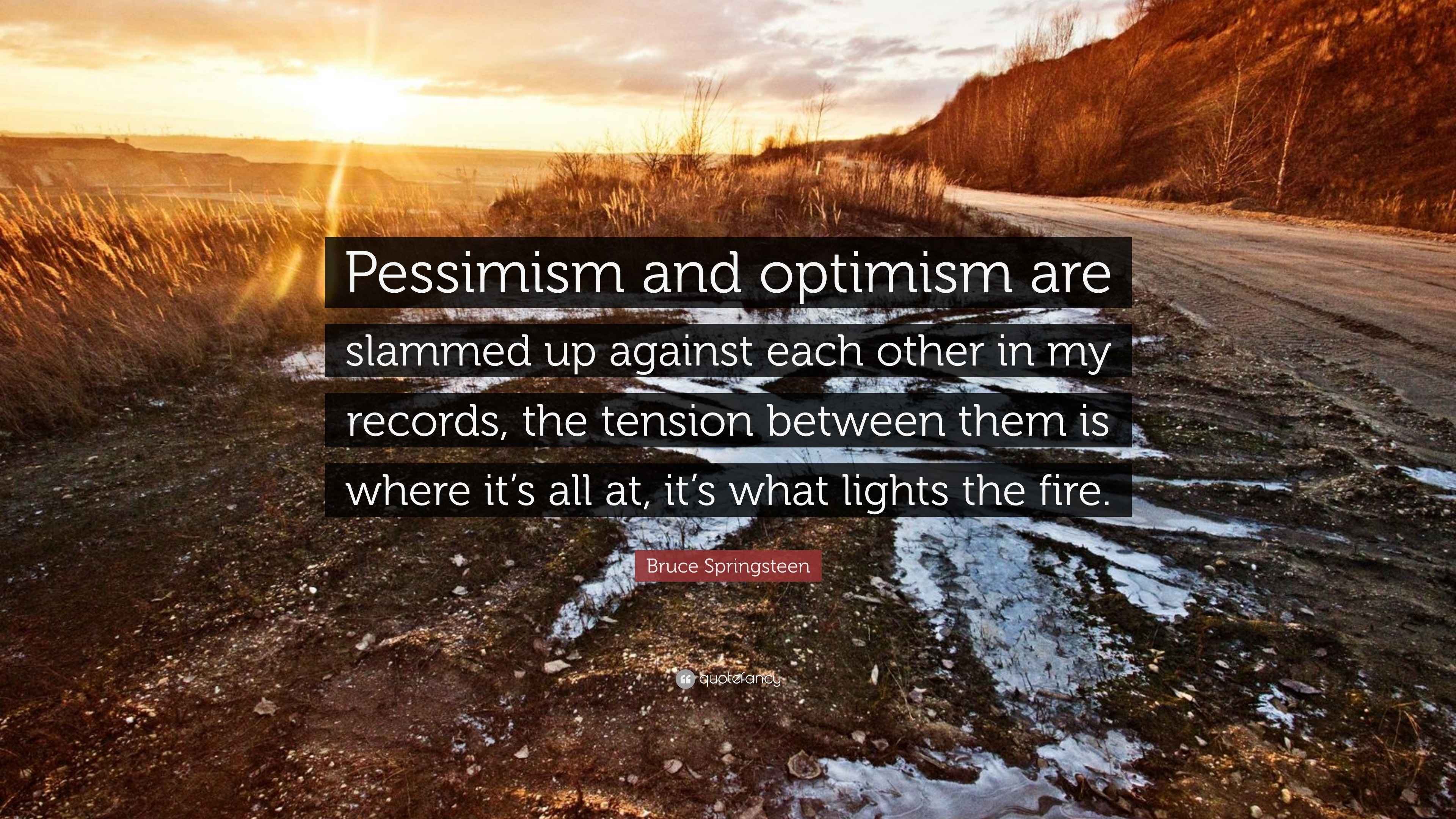


Edna Maria Vissoci Reiche and colleagues have found that pessimists are prone to higher levels of stress hormones, lowered immune response, and increased levels of cancer.They have a more rapid return to a normal lifestyle and a better-reported quality of life. Optimistic individuals recover more quickly following cardiac-related events, such as coronary artery bypass surgery and myocardial infarction.Optimists are twice as likely to be in ideal cardiovascular health, according to a study led by Rosalba Hernandez, a professor of social work at the University of Illinois.Here are but a few findings, out of dozens of articles published on the subject over the last 20 to 25 years: In fact, there is real scientific evidence that an optimistic disposition leads to better health. Now, these are interesting anecdotes, but you might be thinking, is there actually any scientific evidence that optimism or pessimism can impact health outcomes? The scientific evidence that optimism and pessimism impact health Chen asked a consulting psychiatrist if her patient was depressed? “ He’s not,” the consulting psychiatrist told her, “ it’s just the way he is.” In other words, he was a pessimist by nature. Then, one day, he died.īefore he died, Dr. He began to lose weight and eventually required nutritional support.

#Optimism and pessimism series#
Instead, the patient required a series of amputations-each one higher up the foot-in an attempt to stem the infection. Her patient, a diabetic, had been hospitalized for a toe infection that should have responded to a simple course of IV antibiotics. In it, she describes an episode from her medical practice. Sometime later, an article by Pauline Chen, MD caught my attention. In those days, surgeons justified just about everything they did with the phrase, “ in my experience.” Pessimism and poor health outcomes health I was awe-struck, though my feelings were mixed with a healthy dose of skepticism. “ In my experience, he said, their odds of surviving a difficult procedure or post-op period are pretty slim.” I have always remembered what he told me about why he did this: He would also ask them about their families and their outlook on life in general.Īfterward, he would go to the nurses’ station and strike off the next morning’s list of patients those that were pessimistic about their odds of a successful procedure. During that visit, he would engage them in a conversation about their upcoming surgery.

The good doctor always made a point of visiting his patients the evening before their scheduled surgery. He was at that time the widely admired and beloved Chairman of the Department of Surgery at the University of California San Francisco. When I was a young medical student, I had the opportunity to trail Professor John Englebert (“Bert”) Dunphy on his evening rounds. Before I dive into the scientific evidence about whether optimism and pessimism impact health outcomes, let me tell you a short story.


 0 kommentar(er)
0 kommentar(er)
